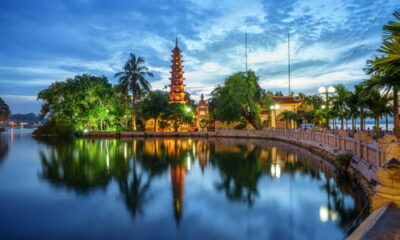

News
Human Rights Concerns Raised Over Don Sahong Dam
Serious concerns about human rights have been raised over the Don Sahong Dam. The United Nations Special Procedures has detailed concerns over the controversial dam under construction on the Mekong River in Laos in a report. The Human Rights Council will consider these concerns this week at its 32nd session.
The Special Procedures highlight the likely transboundary impacts of the project on the millions of people residing in the Mekong River Basin in Lao PDR, Cambodia, Thailand and Vietnam, who are dependent on fish stocks and riverine resources for their food security and survival.
The report cites allegations that the project poses a considerable threat to local livelihoods, “particularly in relation to [local people’s] right to an adequate standard of living, including the rights to adequate food and housing, the right to the highest standard of physical and mental health, cultural rights, the rights to information and participation; as well as the rights of indigenous peoples.” Despite this, the project is proceeding without adequate environmental and human rights impact assessments and in the absence of meaningful consultations with the concerned population.
Maureen Harris, Southeast Asia Program Director at International Rivers, said: “The Mekong River is not just a source of energy and profit, it sustains the basic needs of millions of people. The Don Sahong Dam is a regional human rights concern, with potential transboundary impacts that may affect local communities across the Lower Mekong Basin. Given the severity of the risk, the project developers have a responsibility to conduct adequate due diligence and to clearly demonstrate how the project’s impacts will be mitigated, including the damage to fish migration, before construction continues.”
The United Nations Special Procedures jointly wrote to the Government of Laos, the Mekong River Commission, Malaysian project developer Mega First Corporation Berhad, and the Malaysian government raising their concerns in February and again in March 2016. They have not yet received any replies.
Rapid construction is underway on the project and the Hou Sahong channel, a major pathway for year round fish migration, is now blocked, making these concerns both crucial and urgent. Fish are a primary source of food security and income for communities up and downstream. As the main fish migration season begins with the start of the rainy season in mid-June local communities have already noted changes to the river and their fishing practices.
Sin Kosal, a villager who works for the local fisheries administration in Stung Treng, Cambodia, said: “As the dam has blocked the water channel, the water has become shallow, making it very easy for illegal fisherman to deplete all fish and aquatic animals from the fish pools. Ordinary fisherfolk and families are extremely concerned that they might no longer be able to catch fish to support their lives.”
Tanja Venisnik, Mekong Legal Coordinator at EarthRights International said: “We hope that the report will lead to further international action on the issue within the Human Rights Council. This report reflects the lack of an adequate mechanism in the region to address the human rights impacts of cross-border investment.”
Read the Special Rapporteur’s Report to the Human Right’s Council


 Environment10 months ago
Environment10 months agoAre Polymer Banknotes: an Eco-Friendly Trend or a Groundswell?

 Environment12 months ago
Environment12 months agoEco-Friendly Home Improvements: Top 7 Upgrades for 2025

 Features9 months ago
Features9 months agoEco-Friendly Cryptocurrencies: Sustainable Investment Choices

 Features10 months ago
Features10 months agoEco-Friendly Crypto Traders Must Find the Right Exchange





























